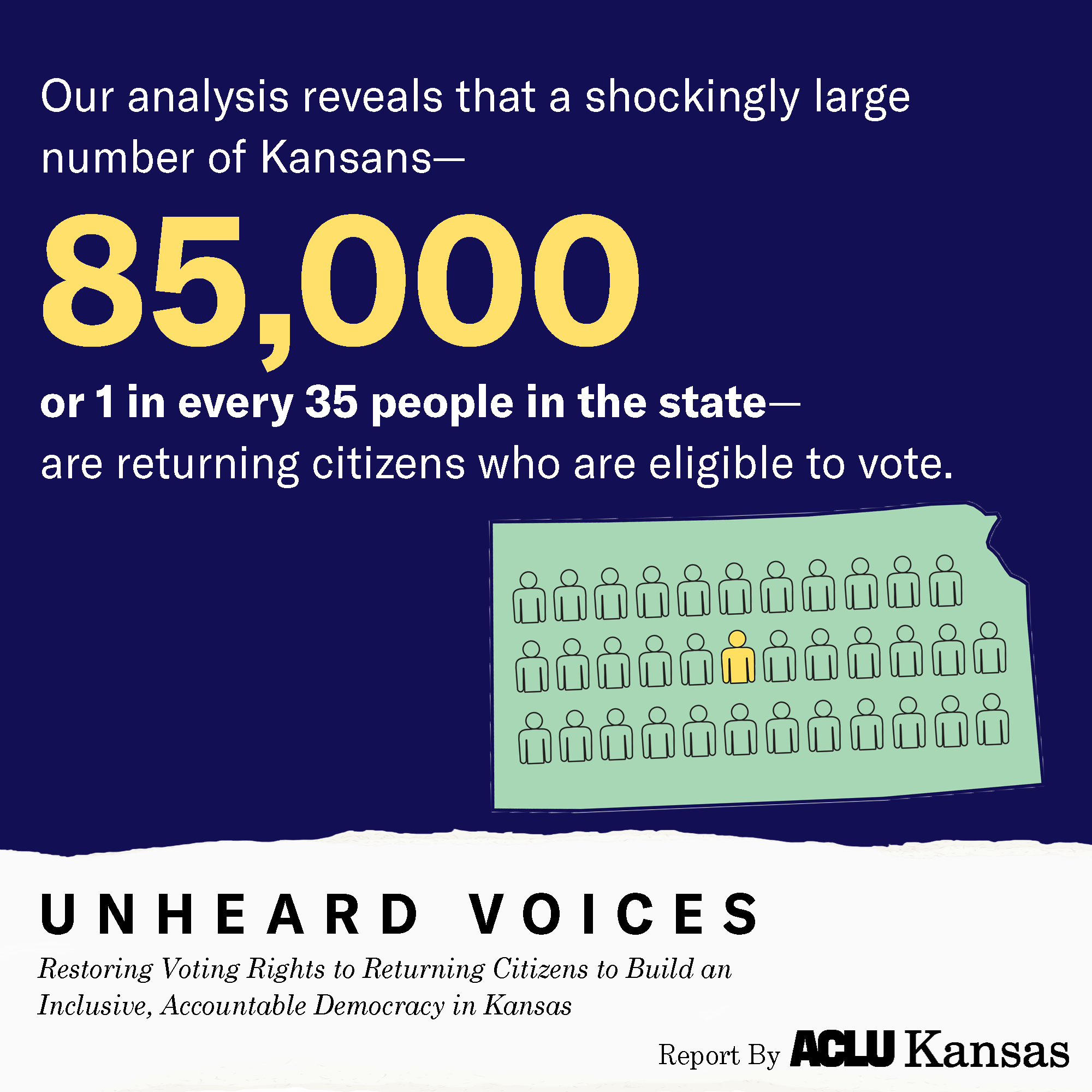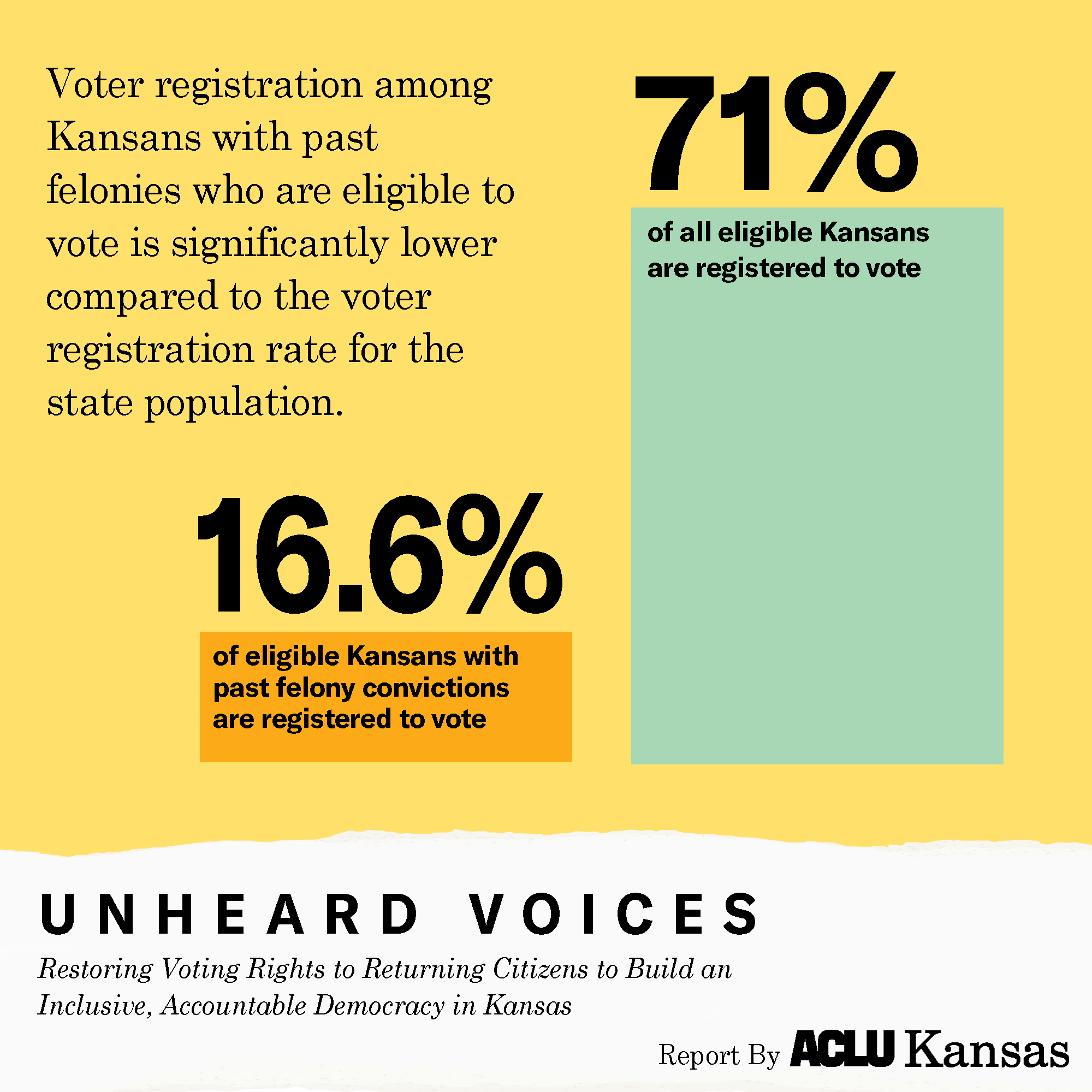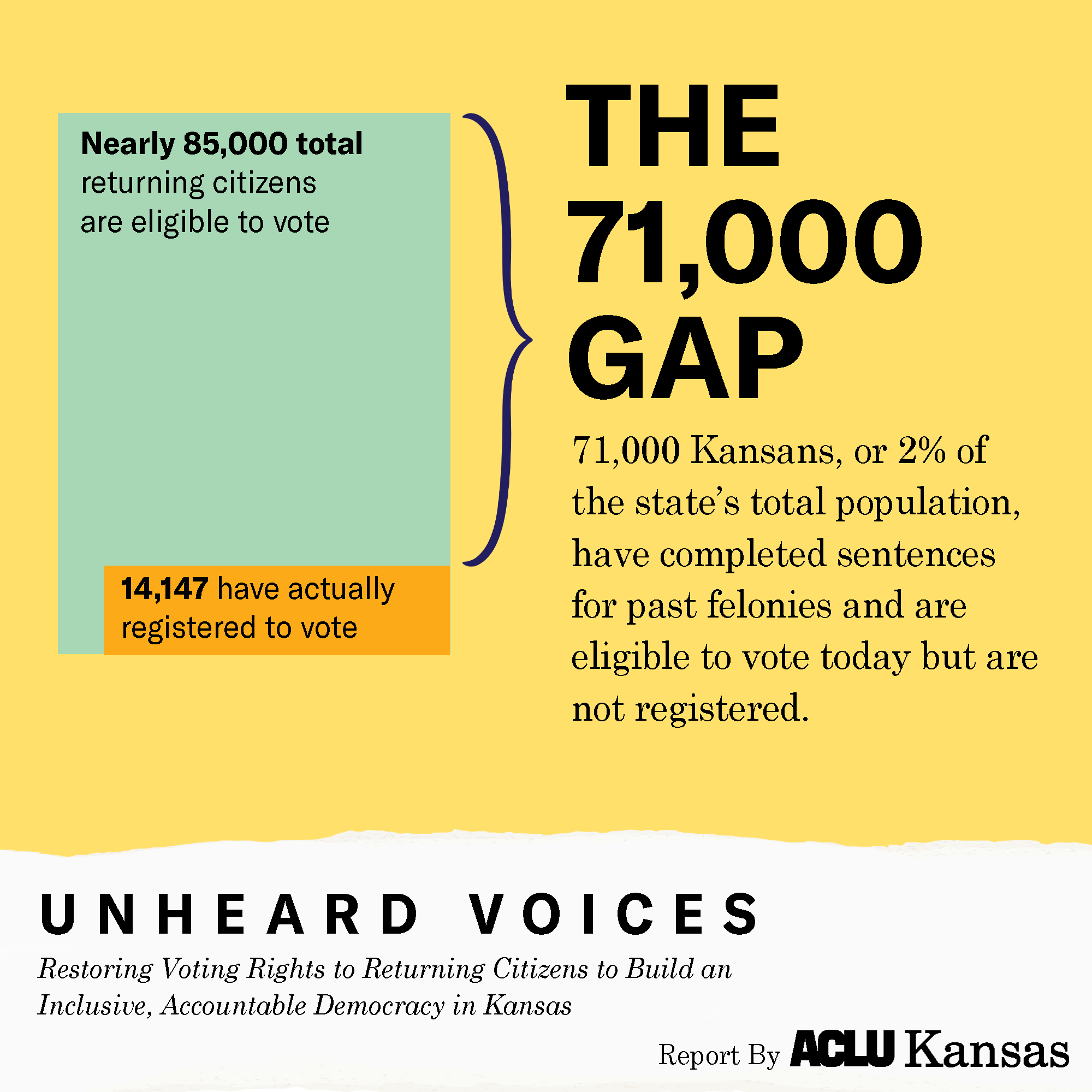- Publications >
- Report
Unheard Voices: Restoring Voting Rights to Returning Citizens to Build an Inclusive, Accountable Democracy in Kansas
Document Date: October 31, 2024
Democracy is, at its core, the idea that every person counts and has an equal say in the governance of the nation. Today, that foundational idea is frequently under attack. There are relentless efforts to make it harder for eligible citizens to register to vote, cast a ballot, and have their ballots counted. Beyond the right to vote, politicians consistently advocate for or implement policies of exclusion, isolation, and marginalization, especially towards communities of color, LGBTQ+ people, immigrants, and vulnerable populations. The thread connecting these actions is that they all undermine the values of our democracy by explicitly or implicitly asserting that some people are not fully included in our shared community, that their voices need not be heard, or that they have no role to play in holding government and politicians accountable to the people.
In such an environment, it is all the more important that we defend the principles of democracy by doing all we can to ensure that every eligible citizen’s voice is heard. Although there are many steps between our current moment and the destination of fully realizing that ideal, one essential step is to prioritize voter registration and ensure that every eligible citizen can exercise their right to vote. In Kansas, returning citizens are eligible to have their voting rights restored immediately upon completion of their sentence, including probation and parole. The process for having voting rights restored can be as simple as filling out a voter registration form. However, a combination of structural challenges, policy barriers, and blatant misinformation about eligibility result in huge numbers of returning citizens not registering, seeking rights restoration, or participating in Kansas democracy. Their absence—and exclusion—from the electoral process impoverishes our democracy, the dialogue about our shared future, government accountability, and the policy outcomes that all Kansans experience.
This report demonstrates just how important meaningful rights restoration is to the future of Kansas democracy. It does so by providing a comprehensive analysis of eligibility to vote in the state’s returning citizen community, while interrogating how many Kansans are excluded from fully participating in the electoral process. This report provides findings resulting from an unprecedented data collection and research project, conducted through a partnership between the ACLU Foundation of Kansas and the nonprofit organization Free Our Vote.
Our analysis reveals that a shockingly large number of Kansans—84,938, or 1 in every 35 people in the state—are returning citizens who are eligible to vote.

Of these roughly 85,000 eligible Kansans, just 14,147 individuals with past felony convictions have actually registered to vote, resulting in a voter registration rate of around 16.6%, well below the overall statewide voter registration rate.

That leaves fully 71,000 Kansans—or about 2% of the state’s total population—who are returning citizens, eligible to vote, but unregistered. These individuals have completed their sentences and have no indication of being currently registered, making them eligible to re-enfranchise and participate in the democratic process.

To address the barriers to restoring voting rights and to build a more inclusive and accountable democracy in Kansas, policymakers should implement the following proposals:
- Ensure voting rights are never lost, regardless of felony conviction
- Provide for the automatic restoration of voting rights
- Ensure automatic notification and assistance with voter re-registration
- Conduct educational outreach and voter registration assistance
- Synchronize statewide voter registration databases
- Implement “vote from jail” programs
Read the full report below. To learn more about your rights voting in Kansas after a felony and our efforts to help spread the word and educate our community about their rights, click here to learn more about Restore My Vote.
Related Issues
All Documents
Related Content

- Voting Rights
New Report: 85,000 Kansans with Past Felonies Currently Eligible to Vote
Stay Informed
Sign up to be the first to hear about how to take action.
By completing this form, I agree to receive occasional emails per the terms of the ACLU’s privacy statement.
By completing this form, I agree to receive occasional emails per the terms of the ACLU’s privacy statement.

